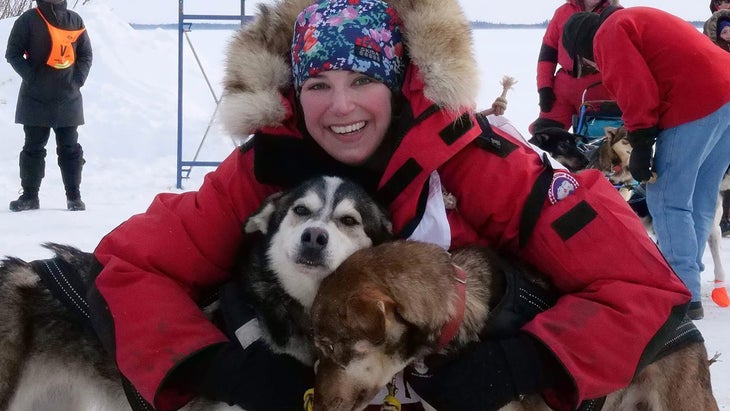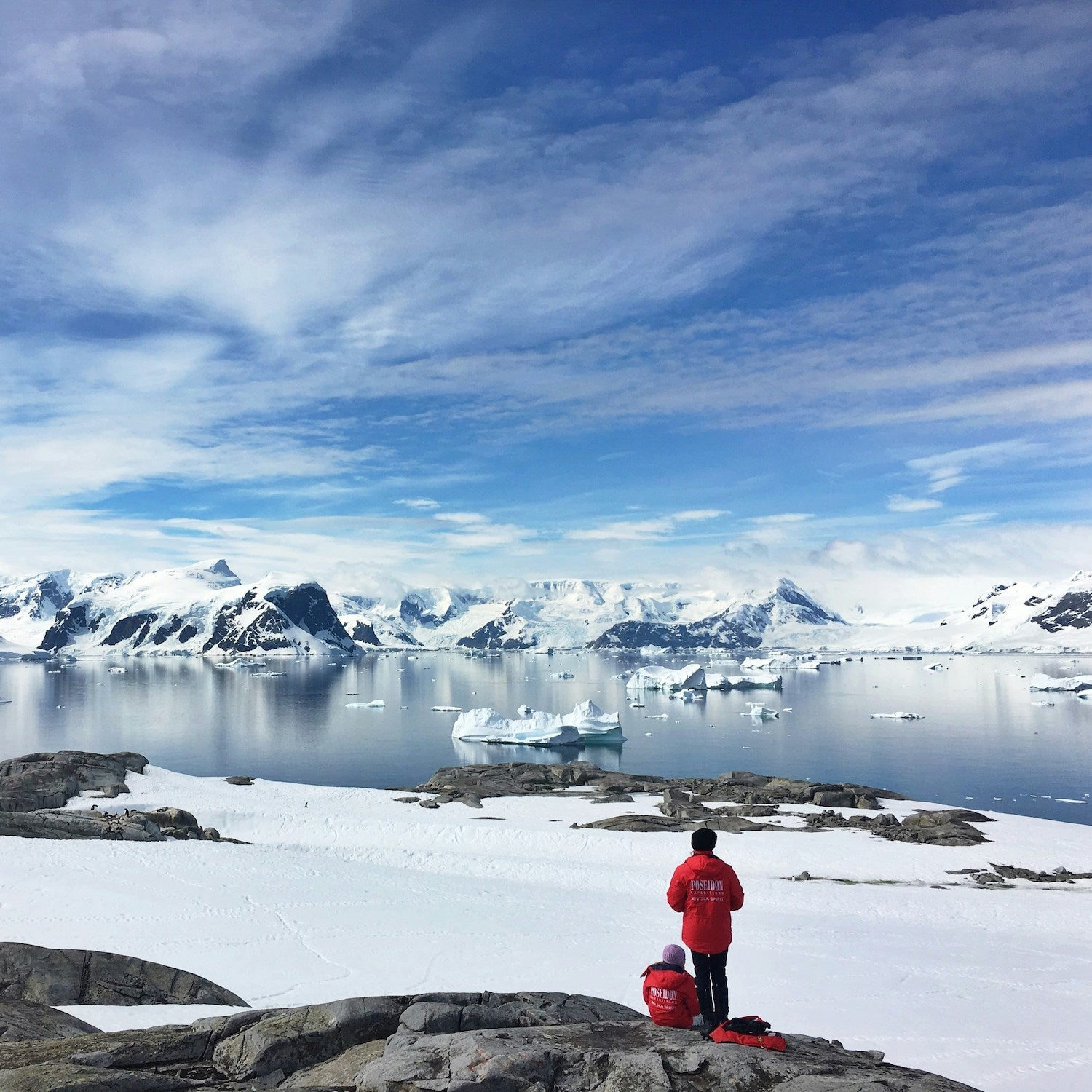When Bre Kanak, an art teacher in northern Wisconsin, was invited to join a nine-day sea expedition to Antarctica, her husband Dan stayed home to watch their snakes and chickens. He felt a bit of FOMO, he admits, but mostly he was excited for her—especially because he got to follow along vicariously. Dan remembers keeping a close eye on Antarctic weather as Bre’s ship crossed the infamous Drake Passage, a stretch of circumpolar ocean known for having some of the roughest waves in the world. “I remember being so proud when I got a text during the passage,” Dan told me over the phone. “Bre was standing outside in the wind, vlogging for her students. If I’d been there, I’d want to be the guy out on deck with a cigar, chatting it up with the crew. And minus the cigar, that was Bre.”
“When you choose your person, you think, ‘This is my adventure partner,’” Bre told me. “The whole trip, I kept thinking how much he would have loved it.” But every adventure partnership has limits, and the more adventurous a couple, the more likely that each partner will have to negotiate doing big things solo—or, sometimes, being the one left behind. If one person encourages their partner’s adventures but feels unsupported on their own, that gap can undermine or even end a relationship. But when the support is mutual, it sets up both partners for adventures they never would have managed otherwise.
It’s a dynamic I know intimately. My husband and I are both long-distance dogsledders, and while we train our team together, we race separately, taking turns embarking on multi-week solo expeditions while the other keeps the home fires burning. This past winter, he raced in the Iditarod while our kids and I stayed with my wonderful in-laws in Chicago. I felt incredibly proud, excited, and worried all at once, and flip-flopped between wishing that I, too, was on the runners in forty below—and relishing the joys of eating takeout in a climate-controlled suburban house. More than anything else, I knew he was embarking on something extraordinarily difficult, and I wanted him to feel unequivocally supported and loved.
How do you have your partner’s back when they’re doing something big without you, whether it’s embarking on an expedition, running a marathon, or pursuing some other private dream? What if it’s a dream you can’t relate to—and what if you wish you were doing it, too?

Put everything else aside: first, you have to believe in them. Believe in their preparation, their dedication, and their ability—even if the journey doesn’t go as planned—to integrate what they’ve learned and move forward stronger regardless. �����ԹϺ���s can go all kinds of ways. Your partner might fare far better than they hoped, or they might get injured, homesick, or caught in a storm. But believing in them doesn’t mean expecting a certain result; it means trusting their intention, their heart, and their hard work. Let them know you’re proud to bursting, every step of the way.
If you’re not familiar with their adventure or their sport, learn the language. You don’t have to be an expert, but if they’re, say, attempting the Appalachian Trail, you should know the difference between a thru- and section-hike, and understand terms like zero day, bonus mile, and blaze. Care enough to read a book about what they’re doing, or watch movies with them, even if it’s not a passion you share yourself. Is Dan specifically interested in Antarctica? Not really. He’s more into machinery and heritage apples. But you can bet that after Bre’s trip, he knows more about penguins than he ever expected to learn.
Part of the beauty of a public adventure—whether your partner’s on an expedition they’ve advertised on social media, or running a big-name marathon all their training partners know about—is that you can be a container for other people to support them, too. If they’re out training for a race, buy some markers and poster boards and invite friends over for a beer-and-signmaking night. Then hide the signs until race day, when you can stage them along the route. Your partner will get a boost of encouragement from supporters they might not have expected, and you’ll be building your own network of people you can call if you start freaking out over, say, split times. “Bre’s dad found a website where we could see in real time where the ship was, how many miles out of port, the sea conditions, all of that,” Dan says. “That was definitely a way to feel connected to her trip, and it kept me connected to her family, too.”
The connections that form through a big endeavor can be surprising. After one of my first successful dogsled races, I got a note from a legend in the sport, Lloyd Gilbertson, who said he’d noticed my win and that I’d done a great job. I was flying high. I drove out to meet him, and we’ve since become close friends. It took me a few years to realize what should have been obvious: there was nothing exemplary about my race in particular; that wasn’t why he reached out. He simply had a practice of noting up-and-comers and being generous with encouragement and praise. Lloyd is a dogsledding mentor to me now, but more than that, he’s a mentor in building and holding community—two things that are vital when it comes to big adventures, whether it’s you or a loved one doing the adventuring. And being the person at home often means you have more time and space for communication, not less. Try to follow along with other athletes or adventurers doing the same thing as your partner, and don’t be afraid to reach out unsolicited to let them know that you care. Good energy comes around, and putting goodness into their community is a way of looking out for your partner, too.
And what if you get that restless feeling that you wish you were out there yourself? Try to distinguish between jealousy and envy: jealousy means wanting something just for yourself, while envy means that you see what someone else has, and you want it, too. It’s non-possessive, and luckily, there’s no scarcity of adventure in the world. Do you feel that your partner supports you, too, when it’s your turn to do something big? If not, that’s a bigger conversation—but if so, now’s the time to breathe deep, refocus, and work on your patience. There are journeys enough for all of us, and yours will come, too.


